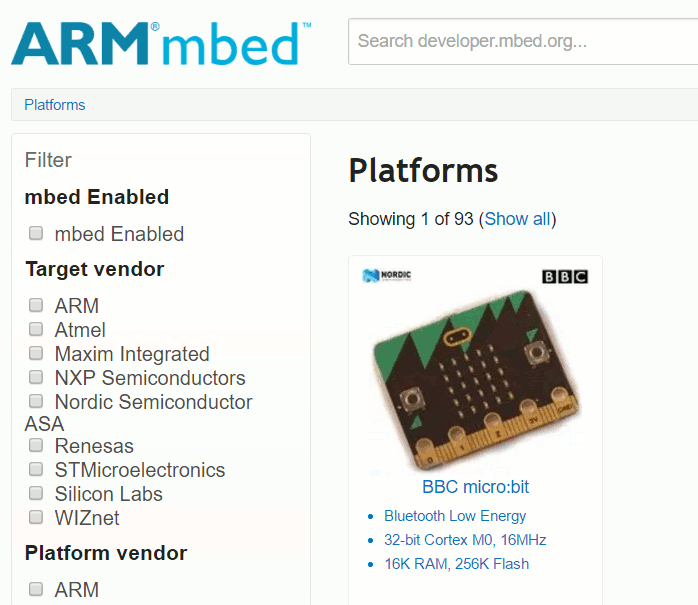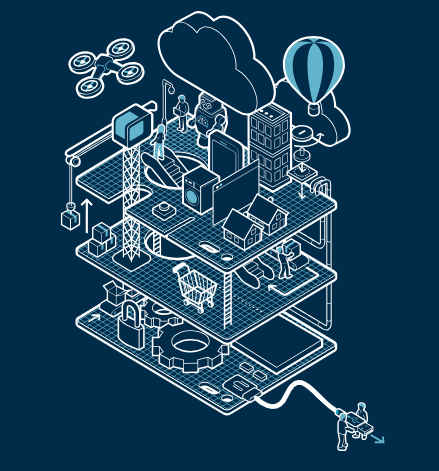| Mbed Is Dead - Thanks Arm |
| Written by Harry Fairhead |
| Wednesday, 17 July 2024 |
|
Fifteen years ago, ARM decided that it would be good to "help" IoT projects by creating a common OS and development environment for ARM-based development boards and brought us Mbed. Now we have until July 2026 to move to something else. When ARM announced Mbed back in 2009 I wasn't sure what to make of it - apart from thinking that they had found a "cute" name. I first used it with some professional dev boards and found it easy to use and promising. I later got deeper into it with my work on the BBC microbit - which used a heavily modified version of Mbed. What surprised me at the time was that while the list of supported boards was increasing rapidly there was no sign of any "popular" devices and Raspberry Pi was notable by its absence. I bothered to ask if there was any chance of support for the Pico in particular and received a polite reply to the effect that Mbed was a professional OS, not for toys and mucking about. I think it was at that point I realized that it was only a matter of time before it would be a dead, professional, OS. Arm's attitude towards hobbyists was just wrong and the number of bugs and unsupported features in the SDK was the final straw.
At first you could use a downloadable SDK and toolchain. Later the compiler moved online. Another big red flag. If I can't host the toolchain locally then I am unhappy to be reliant on the continued existence of a server provided feature. This is a problem I have with Arduino development. I know that there is a locally hosted IDE, but I get the impression that the company sees its future in the cloud and the option to generate a revenue stream from hosting the tools you need. If you think Arduino is too big to fail - I'd assumed ARM was. I've been keeping away from Mbed for a long while now and I'm glad I did: "The Mbed platform and OS will reach end of life in July 2026, when the Mbed website will be archived and it will no longer be possible to build projects in our online tools" Notice that this isn't just the fact that the OS will not be developed or supported anymore - the online compiler will no longer be available. Two years is not a long time for companies to convert their products to a different framework and supporting their legacy is going to be far from fun. "No new commercial projects should be started using Mbed, and any existing Mbed-based commercial projects should start to investigate alternative frameworks. For a list of frameworks please see the FAQs at the end of this document." And the suggested alternatives are the obvious - FreeRTOS, Pico SDK, Zephyr, Arduino and so on. How any of these are workable replacements for any Mbed system already developed is difficult to say. It is clear that this is much like starting over. And don't get excited by: "All users begin to migrate code and other data from Mbed.com to other platforms. An export tool is available in your Mbed account". The export simply does a format conversion - nothing clever. It isn't easy to say what knock-on effects there will be from Mbed's demise. It is clear that the BBC Microbit's software is stable enough to continue as it is - with its additions it is effectively a fork of Mbed. The Arduino software makes use of Mbed to support many of its devices, but presumably they have had time to figure out what to do. Even so you can expect some churn that would not have happened. There is also an open source project to keep the OS afloat, but at the time of writing there are only two contributors. If you feel like a challenge then helping out would be a good thing to do. On the other hand, perhaps it would be better to let it die. The good news is that Mbed TLS, which is a cryptographic library used to add SSH/SSL and so on to many a small and large device, is unaffected. It is an alternative to OpenSSH and much more compact. Despite its name it really isn't part of Mbed OS and ARM state they will continue to support it. It is worth remembering that Google is not the only company to trash large projects that people depend on. It proves yet again that even open source projects are vulnerable when they depend on cloud-based services. At the very least I need a self-hosted option to instil trust.
More InformationRelated ArticlesMicro:bit Getting Started With C/C++ The BBC Micro:bit Is An Mbed Device In C/C++ To be informed about new articles on I Programmer, sign up for our weekly newsletter, subscribe to the RSS feed and follow us on Twitter, Facebook or Linkedin.
Comments
or email your comment to: comments@i-programmer.info
|
| Last Updated ( Wednesday, 17 July 2024 ) |




